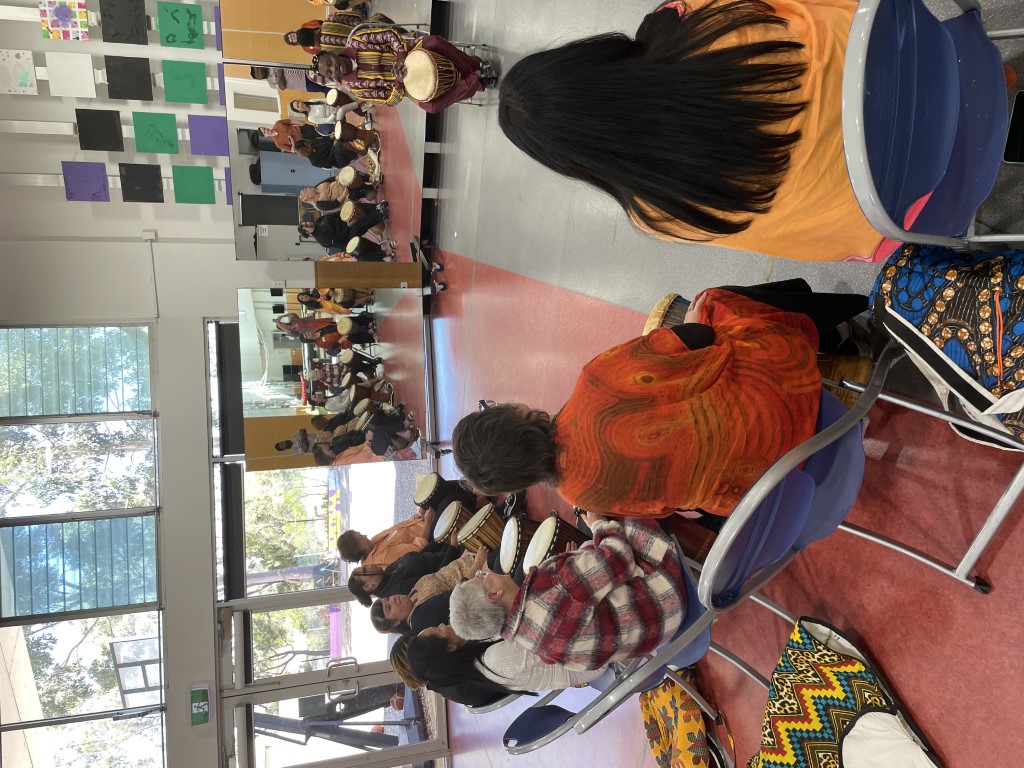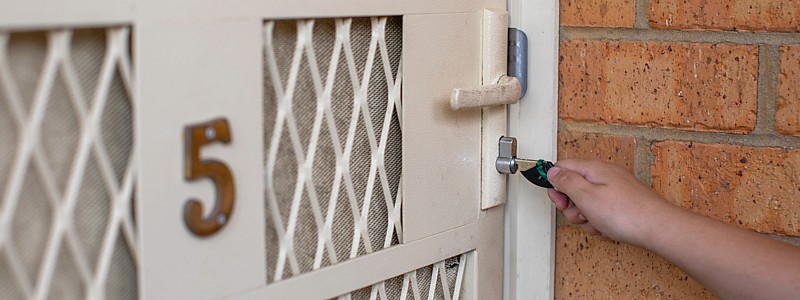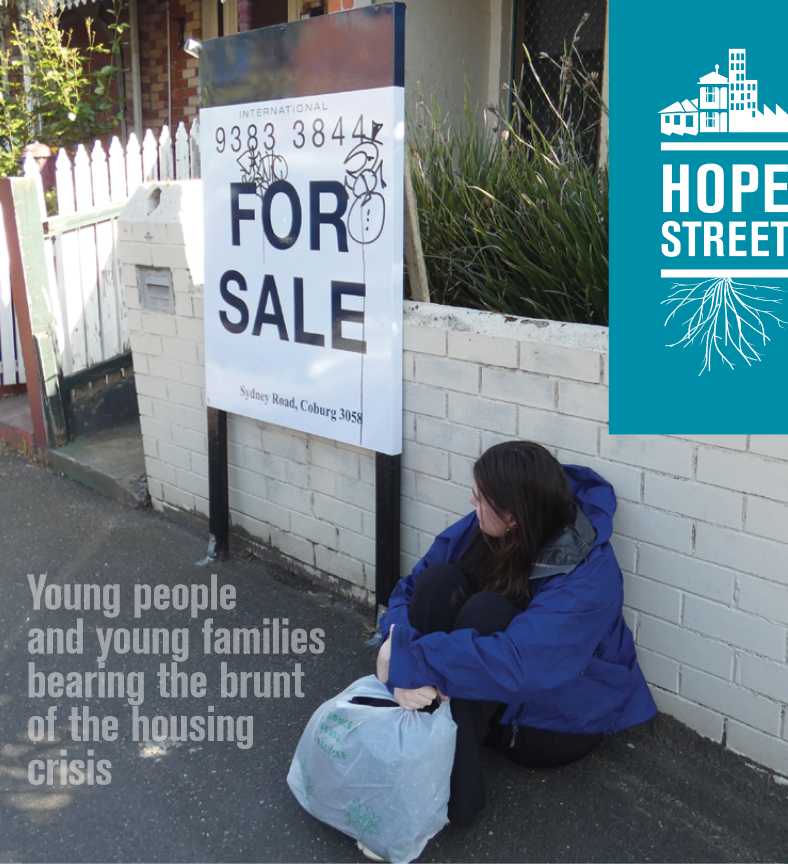Highlights from the 'All Staff Day,' at the Melton Council Youth Centre celebrating 'Everyone Belongs,' on Harmony Day.


On 21 March 2024 Hope Street staff teams were invited to an all-staff day to listen to and provide feedback about their program and wellbeing, hear about the progress on strategic priorities such as Whittlesea, growth and more, and to have some fun and team development. All this in the context of Harmony Day when we acknowledged diversity and the importance of belonging by wearing the colour orange.
It was also an opportunity for Hope Street's staff to come together and reflect on 'Everyone Belongs,' and their team's contribution to advocacy and wrap around service support for young people and young families experiencing homelessness. It was an opportunity for staff across the multiple sites to come together and share program highlights, identify service delivery gaps, explore solutions and focus on getting to know hat everyone brings to the team. Hope Street’s commitment to belonging ensures that staff feel accepted, included, and valued within the workplace. It is within this spirit the Hope Street Well-Being Working Group conducted activities with the team members to enhance belonging to the Hope Street community.
A highlight was the shared experience of Saliah, Team Leader Development and Support, Melton Young Communities, who spoke of the importance of belonging and the West African drumming session by Frank, Team Leader Projects, also of the Young Communities team at Melton City Council. Frank drew the wonderful analogy of our drumming in teams using the West African, Djembe - each having our own individual and diverse beat but holding a base-beat to achieve our common purpose or rhythm.

(Above Sue Scott, Nicole Misurelli, Paula Forrester, Frank, Donna Bennett and Saliah)
This 'All Staff Day,' took place at City of Melton Youth Centre and the First Response Youth Service Refuge Melton where staff received a tour of the facilities and pizza lunch. Not all staff had seen the architect purpose designed youth centre and this was a great way to showcase the leading facilities provided by the First Response Youth Service Team. Some staff even got to continue the Hope Street Melton tour by visiting the Hope Street in Melton (Youth Foyer-like program) cluster model of 12 units providing stability and support for up to two years for young people and their children. Focus is on developing essential living skills through experiential learning and support in key areas such as: budgeting, cooking/cleaning, establishing routine, developing communication skills,
Hope Street thanks the Melton City Council Youth Services for providing a venue for the Hope Street All Staff Harmony Day and their warm support welcoming our team to their centre and community in the heart of Melton.




Hope Street has joined a coalition of nearly 100 organisations demanding the federal government do more for youth homelessness. With fresh figures revealing the extent of youth homelessness, the campaign, ‘Home Time,’ has called on the Commonwealth to develop a national pool of 15,000 dedicated youth tenancies for 16 to 24 year-olds. The launch of the ‘Home Time,’ campaign has landed alongside a letter to the Federal Housing and Homelessness Minister Julie Collins. The letter calls for three key policy reforms “to fix housing for young people in Australia,” and has been signed by 81 homelessness peak bodies and organisations, including Hope Street.
The letter calls on the Commonwealth government to –
· Develop and maintain a national pool of 15,000 dedicated youth tenancies for 16-24 year olds
· Provide linked support services to enable young people to pursue their individual goals and transition to full independence
· Address the rental gap to ensure viability for housing providers and landlords offering tenancies to young people who have been homeless
“Whilst there is an urgent need to address youth homelessness through a dedicated portion of social and public housing specifically designated to young people, 15,000 is still far below what Australia actually needs to accommodate for young people experiencing homelessness. Hope Street is supportive of the Home Time campaign and policy reform on a social housing to address youth homelessness on a federal level, and strongly advises that it must be needs based process to reflect the high levels of youth homelessness present in Australia. Reform on social housing must accommodate the high percentage of young people on social and insecure incomes and needing homelessness services as well as affordable public and social housing. Everyday hundreds of young people rely on homelessness services for support, a dedicated portion of youth focused designed social housing must be constructed/secured to meet this demand and provide the duty of care to support vulnerable young people. With this support is the need for a dedicated support system that links young people with their goals and independence for a brighter future.” - Donna Bennett, Chief Executive Officer, Hope Street.
In the words of Brian Burdekin, AO. “Following my National Inquiry on Homeless Children I appealed to the Australian High Court to change Australian law to implement the United Nations Convention on the Rights of the Child. The High Court ruled that the Australian Government must respect the rights of all children set out in that important Convention —including the right to adequate housing.”

We won! Led by Homelessness Australia’s campaign, the Federal Government will extend the 73 million funding to respond to the homelessness crisis. In solidarity with peak service providers and the Australian Services Union, an Open Letter to the Hon. Julie Collins, Federal Housing and Homelessness Minister and the Housing and Homelessness Ministerial Council, has resulted in the Federal Government’s guarantee to not decrease Federal homelessness funding. Hope Street is pleased that the necessary Federal funding support will be secured for the sector to respond to homelessness services demand, which is needed for the community to have a compassionate response to homelessness. The very exciting news this time around is that now the funding has been wrapped into the base amount of money in the National Housing and Homelessness Agreement (NHHA). This is an important step towards more equitable funding for homelessness services, but it is necessary to acknowledge that young people and their families should not be left behind when it comes to homelessness services.
“In 2021–22, Victorian homelessness services assisted 102,000 people – that's 37 per cent of total clients nationwide. A long-term vision for homelessness service providers is socially and economically viable, as it is well-resourced service providers that address key areas to prevent vulnerable people falling through the cracks. This reduces the economic, health, and social cost later through an investment in a person’s life early to secure their wellbeing and opportunities for social and community participation, including cultural connection, healthcare, employment and education.” - Donna Bennett, Chief Executive Officer.
There is an ongoing need to guarantee funding allocations and resources for youth specific homelessness services which provide valuable social housing and sustainable housing options with wrap-around supports for young people to achieve their goals and access secure housing options.
“Homelessness and housing service providers need to receive priority by Federal, State and Territory Governments, and not be side-lined when responding to the housing crisis as they are embedded into the community already. This funding guarantee will support service providers to continue their important work across Australia, but more needs to be done to respond to the on-going increase in demand for homelessness services, especially for young people and their families. The community needs a compassionate and well-funded response to homelessness which caters to the specific needs of vulnerable young people. For young people and their children, the experience of homelessness young has life-long consequences. It’s time for a compassionate response to the homelessness crisis with long-term investment.”- Donna Bennett, Chief Executive Officer.
Media response to the Open Letter
Hope Street is providing comfort for young people and their children.
Providing dignity and comfort for young people and their children who are striving to secure a safe place to call home with high quality and beautifully designed linen. Hope Street is doing important work in the community to provide a safe place to sleep and receive support to young people at risk of homelessness and donations provide much needed resources as a part of the process to positive change.
Thank you, Sheridan, and StreetSmart Australia for the SleepSmart donation of these 42 sets of brightly designed and quality linen ‘sleep kits’ for the young people who reach out to Hope Street Youth and Family Services via the Hope Street specialist programs.


"At Sheridan, we've seen time and time again how transformative true rest can be on an individual. But not everyone is lucky enough to have somewhere safe to sleep — which is why this initiative is so important. Together with StreetSmart, the simple comforts of home are provided to tens of thousands across the country — while providing support to community organisations doing important work."- Andrew Seargean, Group General Manager of Sheridan Australia
“Being able to rest in a safe environment with quality linen is psychologically important for a young person to decompress and begin to develop a sense of belonging whilst they turn their minds to achieving essential day to day living goals. It allows a young person to feel comforted in a space, bedroom, that is theirs for a short-while.” Donna Bennett, Chief Executive Officer.


SleepSafe supports grassroots, community-based organisations by providing localised grants to shelters and vulnerable support services. SleepSafe believe that housing is a basic human right and raising funds for local emergency accommodation services and bedding products is integral to ensuring that all Australians have a safe place to sleep.
“A safe place to sleep is an important part of being comforted. For young people to have quality linen from Sheridan that is bright and beautifully designed ensures they feel valued. This ensures young people have a sense of belonging in a space that allows them to rest and begin to feel that they can focus on other basic areas of their life.” - Donna Bennett, Chief Executive Officer.


Partners eNewsletter
Sign up to have our free quarterly Partners eNewsletter delivered to your inbox and learn more about how Hope Street and its partners are supporting young people and young families who don't have a safe place to call home.
Upcoming Events
Latest News
Popular
Featured Stories
Homelessness - Facts & Stats

FEATURED PILOT PROGRAM: Hope to Home in Whittlesea
Many young people face obstacles when trying to secure stable accommodation due to no rental history, lack of affordable housing, and no employment to sustain rental leases. The Hope to Home in Whittlesea pilot program will address these issues by:
- Facilitating the transition of up to 30 young people (and their children) from the Hope Street in Whittlesea program or Whittlesea Housing into 1 and 2 bedroom units
- Providing case management once they secure private rental of these units
- Helping these young people maintain their tenancy, employment, education and training, and community connections
- Engaging the support of community stakeholders including local businesses to address barriers contributing to youth homelessness
Please contact us if you would like to become a partner and support at risk young people and young families.














